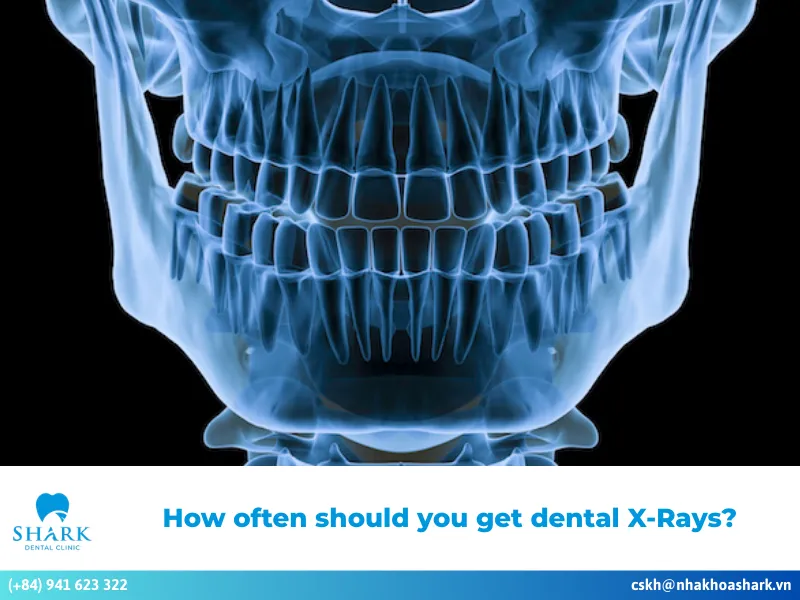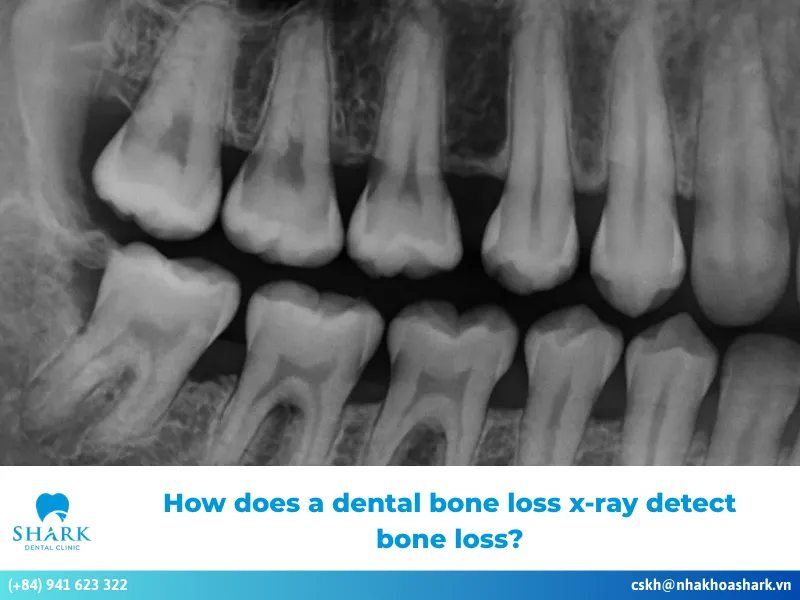Teeth whitening is a popular cosmetic dental procedure that helps improve discolored or yellowed teeth, giving you a brighter and more confident smile. However, to maintain the whitening results, it’s essential to follow a proper diet and oral care routine. So, what can I eat after teeth whitening and what foods should I avoid? Let’s find out in the article below!
Why should you pay attention to your diet after teeth whitening?
Teeth whitening is a straightforward dental procedure, but to maintain long-lasting results, it’s important to follow a proper diet afterward. Here are a few reasons why you should pay close attention to your eating habits after teeth whitening:
- Protecting tooth enamel: After using whitening agents, your enamel temporarily becomes weaker. During this period, your teeth are more vulnerable and can easily become stained again when exposed to acidic or dark-colored foods and drinks.
- Reducing tooth sensitivity: Following professional teeth whitening, some individuals may experience tooth sensitivity or mild pain, especially when consuming hot or cold foods and beverages. Adhering to the right dietary precautions can help alleviate discomfort and allow you to enjoy your meals.
- Preventing re-staining: Many dark-colored substances can quickly cause your teeth to yellow again. While some people experiment with DIY methods like turmeric teeth whitening, the intense yellow pigments in turmeric are actually high-risk stainers that should be strictly avoided immediately following a professional clinical treatment to prevent the fading of your results.
- Lowering the risk of tooth decay: If you do not take proper care of your teeth after whitening, bacteria can accumulate between the teeth and around the gum line. Over time, these bacteria can multiply and attack the enamel, leading to cavities and other oral health issues.
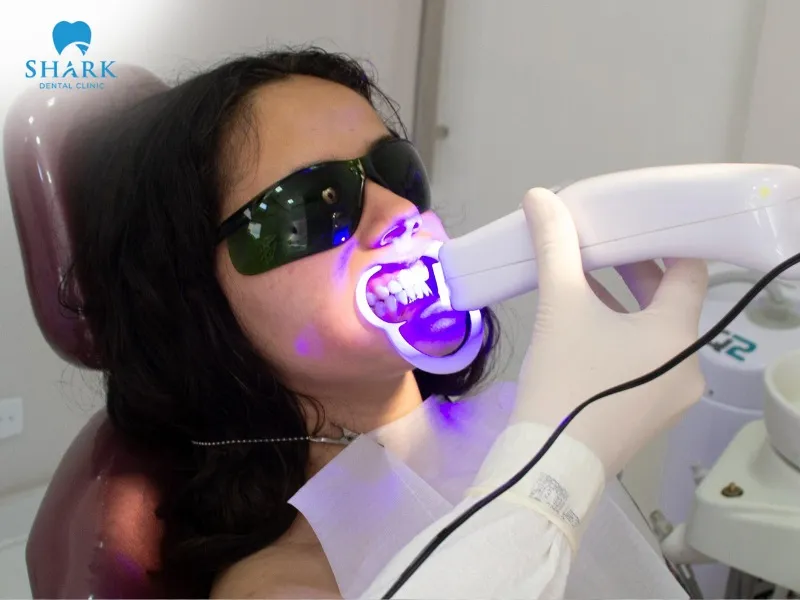
What can i eat after teeth whitening?
After teeth whitening, you can still enjoy a variety of foods while maintaining good nutrition. However, for the first 5 to 7 days, it’s best to consume soft, light-colored foods to help your teeth stabilize and preserve the whitening results.
- Light-colored foods: Focus on foods that are light in color after teeth whitening. Options like white meat and fresh vegetables provide essential nutrients and help prevent discoloration, making them ideal choices post-treatment.
- White meats: White meats such as chicken breast, lean pork, fish, and shrimp are high in protein and do not impact tooth color. They are excellent choices to include in your diet after whitening.
- Fresh vegetables and fruits: Certain vegetables and fruits, like pumpkin, carrots, cauliflower, bananas, and green apples, are suitable options. They are rich in vitamins, gentle on the enamel, and safe for maintaining oral health.
- Seafood: Fresh seafood, such as clams, squid, and shrimp, can be easily prepared and provide minerals that strengthen teeth. Seafood is high in protein and does not harm enamel, making it ideal for those who have recently undergone teeth whitening.
- Water and coconut water: Plain water or fresh coconut water helps cleanse the oral cavity without damaging enamel. These clear and mild beverages can prevent staining and effectively wash away debris and residue from the mouth.
Building a balanced and careful diet after teeth whitening is always recommended by dental professionals. If you want to maintain a bright and healthy smile for the long term, be sure to follow a proper eating plan!
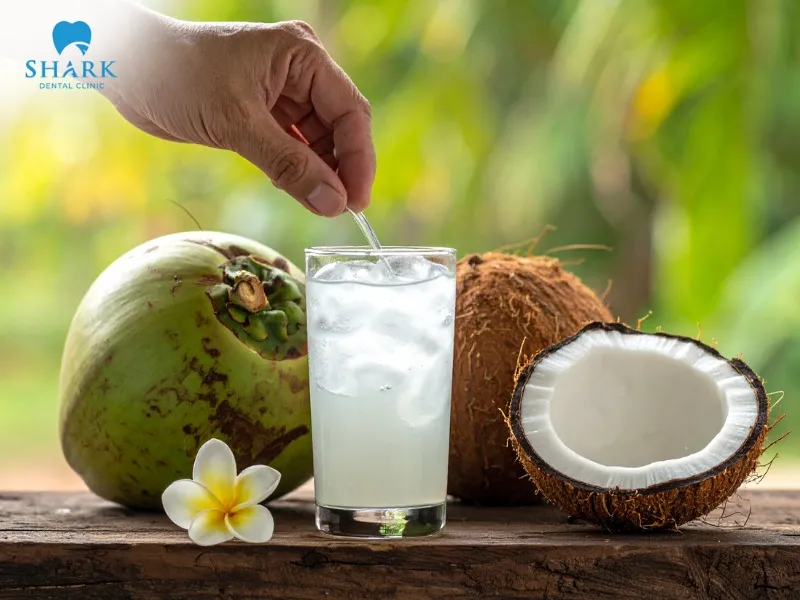
>>> See more: How long after teeth whitening can I eat normally?
What foods should you avoid after teeth whitening?
To maintain the brightness and health of your smile after teeth whitening, it’s important to avoid or limit certain types of foods and drinks. Here are the main categories to steer clear of:
- Dark-colored foods and beverages: Items like coffee, soft drinks, beetroot, and curry contain strong pigments that can easily adhere to the enamel, leading to stains and discoloration.
- Highly acidic foods: Citrus fruits such as lemons, oranges, and tangerines are high in acid, which can erode tooth enamel. It’s best to avoid these foods for the first few days after whitening, as they can increase tooth sensitivity and irritate the gums.
- Foods that are too hot or too cold: Cold desserts, ice, and very cold beverages can trigger tooth sensitivity and discomfort by stimulating dental nerves.
- Spicy, oily, and greasy foods: Fried foods, spicy dishes, and meals rich in heavy seasoning can irritate the gums and heighten the risk of yellow plaque forming on the tooth surface.
- Tobacco products: Cigarettes contain nicotine, which can quickly lead to plaque buildup and tooth discoloration. Smoking can cause your teeth to become yellow and dull shortly after whitening.
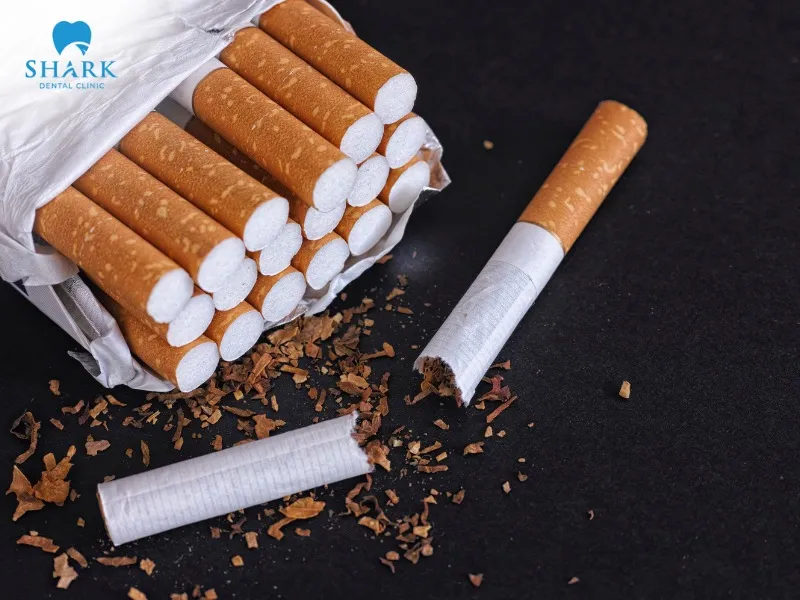
How long after teeth whitening can you return to your normal diet?
After professional teeth whitening, it is advisable to avoid restricted foods for about 2–3 days before resuming your normal diet. However, it’s still essential to maintain a healthy, dentist-approved eating plan to preserve your whitening results for as long as possible and minimize the risk of sensitivity or inflammation.
We hope this guidance helps you take better care of your teeth and maintain a bright, healthy smile every day! For those who have recently had treatment, understanding what can I eat after teeth whitening is crucial for preserving your results and avoiding new stains.
>>> See more: Dental bleaching in Vietnam








